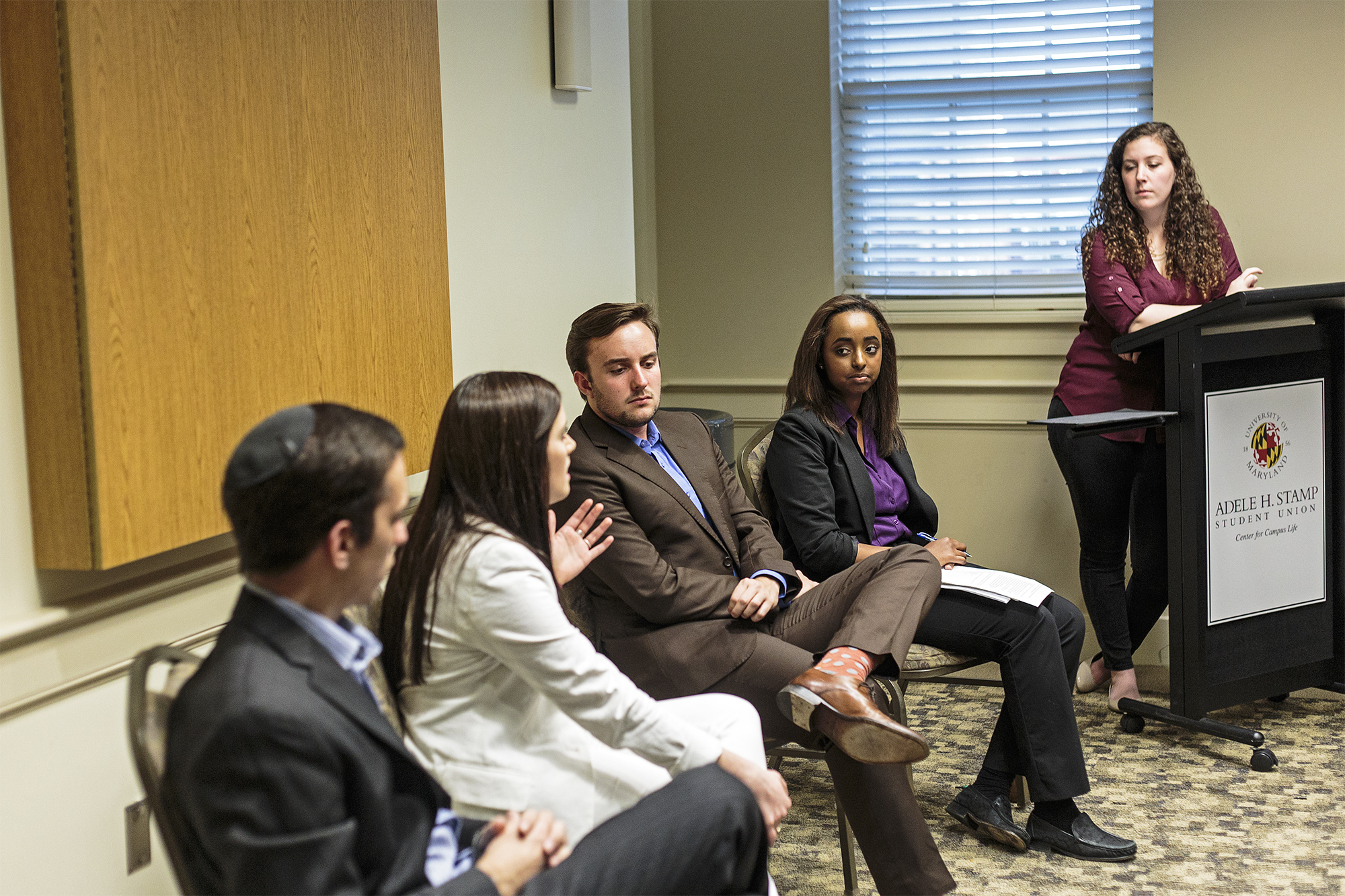The SGA hosted a debate between the executive candidates tonight, despite the fact that all four are running unopposed.
The Bold Party — led by Katherine Swanson, the sole candidate for student body president — was the only political party to file a ticket for candidacy by the deadline.
The intended debate functioned more as a town hall, where the current Elections Board asked the candidates about their platforms and plans for the upcoming year before a crowd of 28 University of Maryland students in the Stamp Student Union.
“Because we are running unopposed, we’ve decided to use our campaign as a way to let students know exactly who we are and what we stand for, and also to let people know how they can contact us and how important it is to us that we are hearing their voices,” said Swanson, a junior government and politics major and the current vice president of student affairs.
The other executive board candidates are A.J. Pruitt, running for vice president of student affairs; Fasika Delessa, running for vice president of academic affairs; and Perry Bloch, running for vice president of financial affairs.
One student, senior individual studies major J.T. Stanley, planned to run for student body president and file a ticket of candidates under the Voice Party but missed the deadline. He unsuccessfully filed an appeal, accusing the Election Board of misconduct. He ultimately was not granted the three-week extension he requested.
Swanson said she was “a little bit sad” about the uncontested election and added that an opposed race engages students and drives new ideas more than a one-party race.
“I’m not here to win an election, I’m here to be a good leader and whether I’m uncontested — that doesn’t change my skill level or my passion for leading students,” she said.
When a student asked about low attendance at SGA town halls and meetings, Swanson and Pruitt said that publicizing these events would be a high priority next year.
“It’s amazing to be out there canvassing this week and to ask someone that comes up to you, ‘Well do you know anything about the SGA? Do you know what the SGA does for you?’ and them not being able to answer that question,” said Pruitt, a sophomore economics and government and politics major.
Delessa also outlined her plan to create an online syllabi database. She hopes to create a “grassroots movement” to get students to submit syllabi from their classes to the SGA.
The SGA passed a resolution in February to revive a syllabus bill from 2012 that would make class syllabi available online during course registration.
“We realize that it’s hard to incentivize professors to put syllabuses up, which is why we’d go across and say, ‘Hey, we have syllabi among our own students, so why don’t we help other students by putting it all in one place?'” the sophomore finance major said.
Senior Allison Daitch asked Swanson about supplemental funding for university departments, such as the counseling center and the Title IX Office.
“The university, while not overly struggling, is not currently in the fiscal situation where it can provide significant amount of funding to these areas beyond what it already does,” said Daitch, a cell biology and genetics major.
Swanson said she doesn’t plan on voting for fee increases unless they’re “absolutely necessary.”
Ashley Feng, the vice-president of the Resident Hall Association, said she attended the debate to see what upcoming changes could be expected in SGA, which works closely with the RHA.
“It’s kind of interesting to see how other government bodies on campus work,” the senior geographical sciences and government and politics major said. “What are their perspectives for campus and what are their visions for next year, because it’s still going to affect our organization as a whole.”



